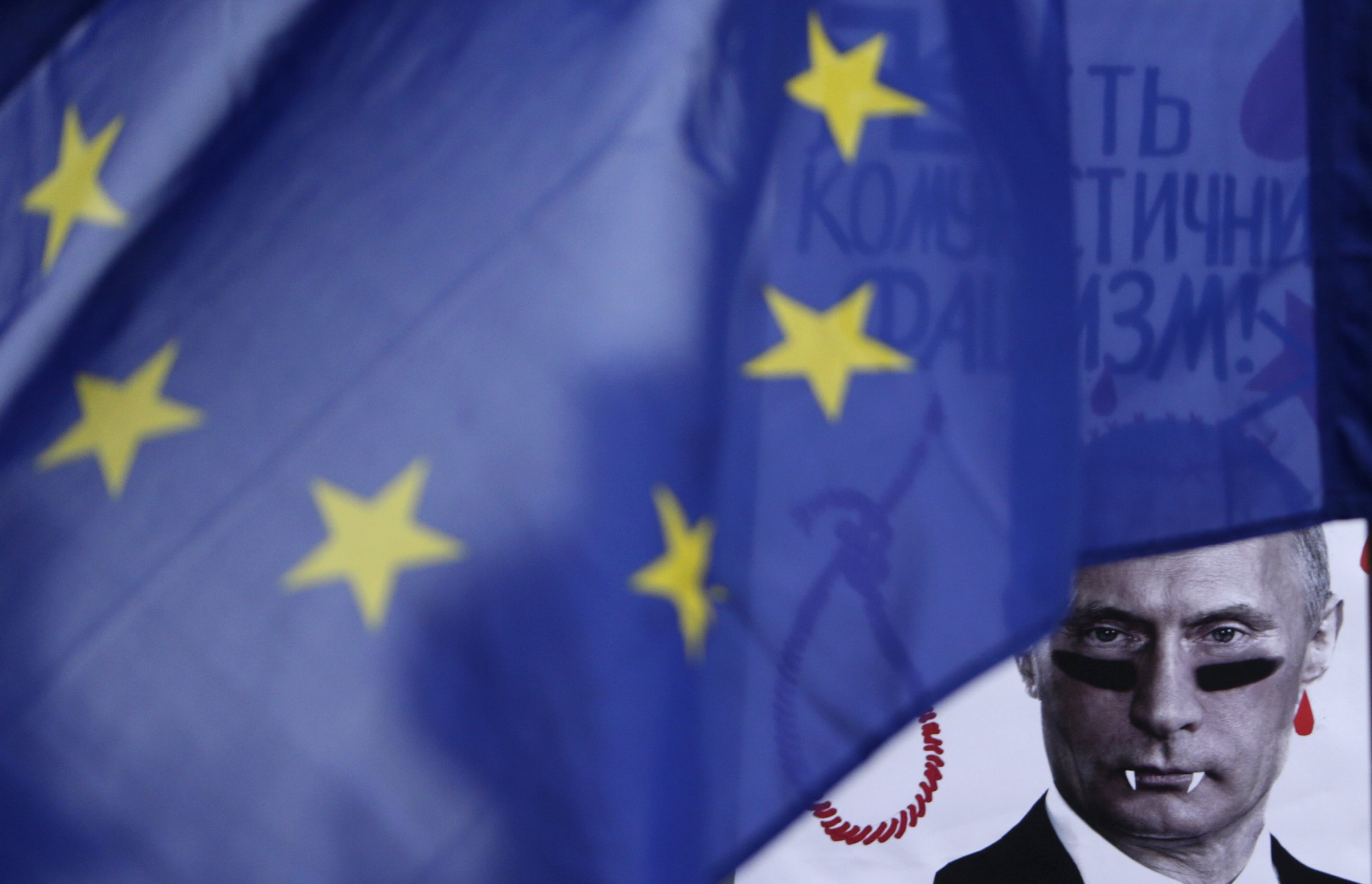
Since the beginning of the Ukrainian crisis in 2014, President Putin's desire to interfere in European politics has increased significantly. The most important principle in this process is "divide and conquer"—putting the focus on the member states where it is easier to exert influence to weaken the European Union. Russian diplomats have made no secret about the fact that they would prefer to deal with nation states rather than the EU. Russia's Foreign Minister Sergey Lavrov said last year that he "would appreciate and prefer a situation where each member country would be guided by its national interests."
The current military and foreign policy doctrines of the Russian Federation define the West and its institutions as enemies rather than allies. Last month, Russia's Ambassador to the EU Vladimir Chizhov openly said that breaking up the EU has never been Russia's aim but it would prefer if it acted more independently, without the influence of the U.S.
In the light of that, it is not surprising that those close to the Kremlin would prefer it if Britain voted to leave the EU in the upcoming referendum on June 23. While Putin himself has not publicly said anything about a Brexit, the Russian embassy in London recently seemed to weigh into the Brexit debate—denigrating Prime Minister David Cameron on Twitter. One tweet accused Cameron's In-campaign of being unable to "win the argument on its merits." The attack was in response to Cameron's claims that aggression from Russia, North Korea and Islamic State is easier to tackle within the EU. Meanwhile, the pro-Kremlin Russian state media does not try to hide its support for Brexit. State-run Sputnik News, for example, published a column on Brexit last month, labelling Britain "Washington's malign surrogate" in Brussels and accusing it of propagating a hardline approach to Moscow.
Over the last two years, state-run Russia Today has focused heavily on the possible breakup of the U.K., highlighting the Scottish First Minister Nicola Sturgeon's comments that an Out vote could trigger a second referendum on Scottish independence. Following Scotland's decision to stay part of the U.K in September 2014, the state-run news agency RIA Novosti cited Russian observers of the vote who claimed it did not meet international standards because the rooms where the votes were counted were too big for observers to accurately follow the counting of the ballots—an absurd claim. Meanwhile one of the first leaders of the pro-Russian forces in eastern Ukraine, Miroslav Rudenko initially insinuated that the result of the Scottish referendum had been falsified. His comments were then removed from the website of the independent news agency where they were first published.
A referendum which produced a result in favour of Scottish independence would have been welcomed by Ukrainian separatists and Putin. In their eyes it would create a precedent of a territory legitimately separating from a country within the EU. The Kremlin has also established ties with populist European right-wing parties that are calling for the dissolution of the EU. Members of Britain's Euroskeptic party Ukip are often found appearing on state-sponsored outlets such as Russia Today, and party leader Nigel Farage has praised Putin as a "superb operator" and said he played "the Syria thing" brilliantly. The Russian President also openly praised the leader of France's far-right National Front party, Marine Le Pen, for her willingness to spread "conservative values" in Europe and her commitment to strengthen national sovereignty instead of serving Brussels after her success in the 2014 European elections.
Naturally, Putin would be happy if Britain, one of the strongest allies of the U.S. in hampering Russian expansion and an advocate of sanctions—abandoned the EU. Brexit could lead to a spillover effect, not just in Western Europe but towards Russia's former sphere of influence too. The Czech Prime Minister has already said that there would be a debate on Czech EU membership if the U.K. votes to leave. It is not difficult to imagine a similar situation emerging in other former Communist states, especially at a time when turmoil inside the EU over the refugee crisis has tested neighborly relations.
Putin's regime is right to assume that it will struggle to exert influence in a strong and coherent EU. In the European Council for example, Putin could not break the unity of member states over the decision to impose economic sanctions on Russia in 2014. In the European Parliament, resolutions and decisions criticizing Putin's regime are often passed with a high majority. In the European Commission too, Russia is finding it harder and harder to influence decisions—the Southern Stream Gas pipeline had to be cancelled, and the nuclear deal with Hungary is in serious danger as well.
Putin is interested in weakening the EU because he knows that a strong, cohesive union is a formidable political opponent. The way Putin sees it, he stands a better chance at destabilizing Europe with Britain out of the EU. The institutional and political chaos that would follow a vote for the U.K. to leave the EU, would undoubtedly play to Russia's advantage—resulting in a weakened and divided Europe. A savvy operator like Putin will be well aware of that fact as Britain's EU referendum fast approaches.
Péter Krekó, Director, Political Capital Institute, Budapest